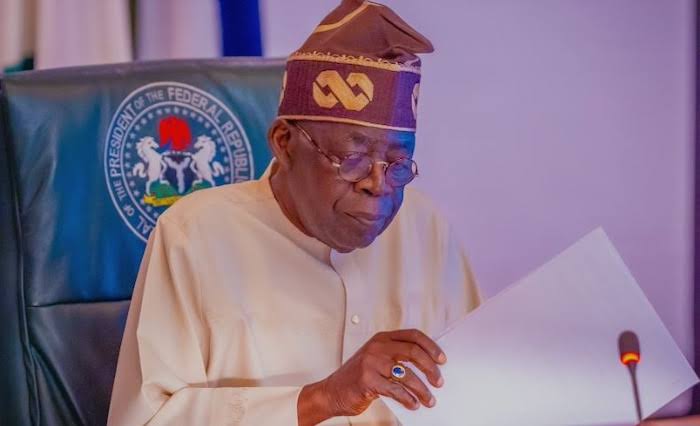Poor governance affecting Nigeria’s reputation – Centre
The Centre for Fiscal Transparency and Public Integrity has said the country’s declining governance score is deeply affecting its reputation. Last week, the Mo Ibrahim Foundation released its 2024 Ibrahim Index of African Governance which assessed governance performance in Africa. According to the report, Nigeria was ranked 33rd out of 53 African nations with a […]

tinubu
The Centre for Fiscal Transparency and Public Integrity has said the country’s declining governance score is deeply affecting its reputation.
Last week, the Mo Ibrahim Foundation released its 2024 Ibrahim Index of African Governance which assessed governance performance in Africa.
According to the report, Nigeria was ranked 33rd out of 53 African nations with a score of 45.7 out of 100.
This ranking highlighted low scores across critical categories such as Security & Rule of Law (39.7), Participation, Rights & Inclusion (47.9), Foundations for Economic Opportunity (48.6), and Human Development (46.4).
US, Nigeria partner to boost peace structures in conflict zones
Poor infrastructure maintenance hinders Nigeria’s sports dev’t – Pinnick
In a statement, Victor Okebe Agi, Public Relations Officer of the Centre for Fiscal Transparency and Public Integrity, said the figures were juxtaposed with the performances of federal public institutions, the 36 state governments and the 774 local government areas (LGAs) in the Transparency and Integrity Index 2024, also recently released by the center.
“These indicators suggest a system that needs immediate reform to restore confidence and reverse these troubling trends. It is important to buttress that Nigeria’s declining governance score deeply affects national and international reputation,” the statement said.
The center called on government institutions to take immediate action to improve Nigeria’s performance across these critical indicators.
The statement read in part: “Importantly, we demand that the government take steps in line with the standards set by the TII to strengthen anti-corruption mechanisms to improve transparency in government dealings by enforcing compliance with the Public Procurement Act, establishing stronger whistleblower protections, and implementing clear mechanisms for accountability across public institutions.
“Nigeria’s score in the 2024 Index on African Governance on the security and rule of law variable points to the need to bolster security frameworks and judicial reforms that protect citizens’ rights, reduce incidences of lawlessness, and ensure fair and equal application of the law to restore public trust in the justice system.
“This can be consolidated when the system promotes civic engagement and inclusive policies that provide a platform for marginalized groups to participate.
“Importantly, these reports are a clarion call to authorities to invest in human capital development by committing to increased spending on healthcare, education, and skills training programs to improve human development indicators and equip the workforce with skills to drive Nigeria’s future economic growth. The government is also enjoined to support the private sector with policies and incentives to attract foreign investment and local businesses to grow. We believe that by creating a more stable business environment with transparent regulations, Nigeria will improve its competitiveness on the African continent.”
